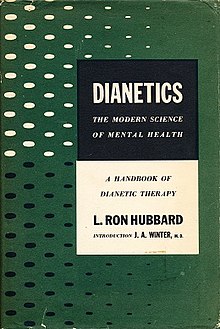Dianetics Fundamentals Explained
Dianetics Fundamentals Explained
Blog Article
4 Simple Techniques For Dianetics
Table of Contents9 Easy Facts About Dianetics DescribedThe Only Guide to DianeticsSome Known Factual Statements About Dianetics Our Dianetics PDFs
I couldn't ever not intend to receive anything that enters your mind for you- if it was or else, I wouldn't be resting right here with you, doing this. I not only might never have an issue, or not intend to listen to something that enters your mind for you, but I'm entirely anxious to understand every concept, every thought, every photo or feeling that emerges or shows up for you- do not ever before assume or else, and if for some reason you do, please just allow me understand! In some cases, you may have an idea, and image, idea or occurrence turn up that does not seem to address the inquiry, or connect to it, however nevertheless, always do tell me regarding it, and as we continue, the importance will arise for you.This is inherent in the basis of handling, and the topic of this discussion: the basic roles of the counselor and the customer: The standard role of the therapist is, unlike "conventional training", not to manage, which suggests to apply and/or hinder, but to instead function from the basis of EMPOWERING THE CLIENT.

The 6-Second Trick For Dianetics
John Mcmasters revealed this basic fact splendidly well in one of his lectures on Power processing, in which he discusses just how he was asked what this "unique flair" was that he had for giving such excellent sessions; he had to consider that for a minute, and spotted that it was what he had not been doing, along with what he was doing: he had not been examining, evaluating, computing, or as a matter of fact, producing any type of thoughts, not to mention spoken expressions, after providing the command and while waiting on the PC to complete their response to their fulfillment; he was, just and just, being existing with the computer, and completely interested.
The role of the therapist, more showed; that was his "unique propensity". I have had my own experience which taught me this well, extremely at an early stage in the game. In 1982, having recently completed my training and teaching fellowship on New Age Dianetics, I was running this on a PC, and there was a point in the session where (being a little bit damp behind the ears not yet having numerous hours under my belt as a professional auditor) the computer appeared to be "taking too lengthy" to reveal anything vocally after I offered him a command.
This secret turned out to be one of the most beneficial contribution that John ever before made to the topic of treatment or bookkeeping (Dianetics). In my simple point of view, it is the biggest contribution that any person has ever before made to these subjectsthe application is entirely non-judgemental, non-evaluative, and without any idea, recommendations or opinion.no preconceived agenda for people, or 'levels' that they need to do
In Scientology we prided ourselves on not examining for individuals. All that actually implied was that the auditor did not VERBALLY examine for the PC in session.
The Best Guide To Dianetics

Any individual who had actually ever before seen John audit can not help however notice an one-of-a-kind high quality in his bookkeeping."The client's basic function is to be there with the objective of moving in the instructions of their spiritual goals, and to easily and fully reveal and experience whatever manifests site for them in addressing the concerns and performing the guidelines in the processing.
This is something to procedure as required. However also, people regularly have prior experience and/or indoctrination in auditing/processing which, in some ways, and to some extent, actually misdirects them into perspectives, ideas and actions patterns that avoid the complete understanding of these roles, and so they will tend to inhibit the expressing of what comes to mind, as in the instances provided above. * The first, and possibly primary examples of mis-indoctrination bring about less than totally smooth and efficient sessions, can be located in particular facets of the training routines, or "TR's":"TR's" are typically a person's first, or at the very least early, experience in Scientology, and while I will take place to discuss what I see as the defects in idea and method, nonetheless, have a tendency to be substantially healing, done as they are offered (Hubbard urges that "TR's are not refining, they are educating", yet factually, they are both processing AND training)
There is no "failing", and no rejection of the truth of this being processing. The emphasis, as it ought to be, is on experiencing the various other individual's presence.
Top Guidelines Of Dianetics

Report this page